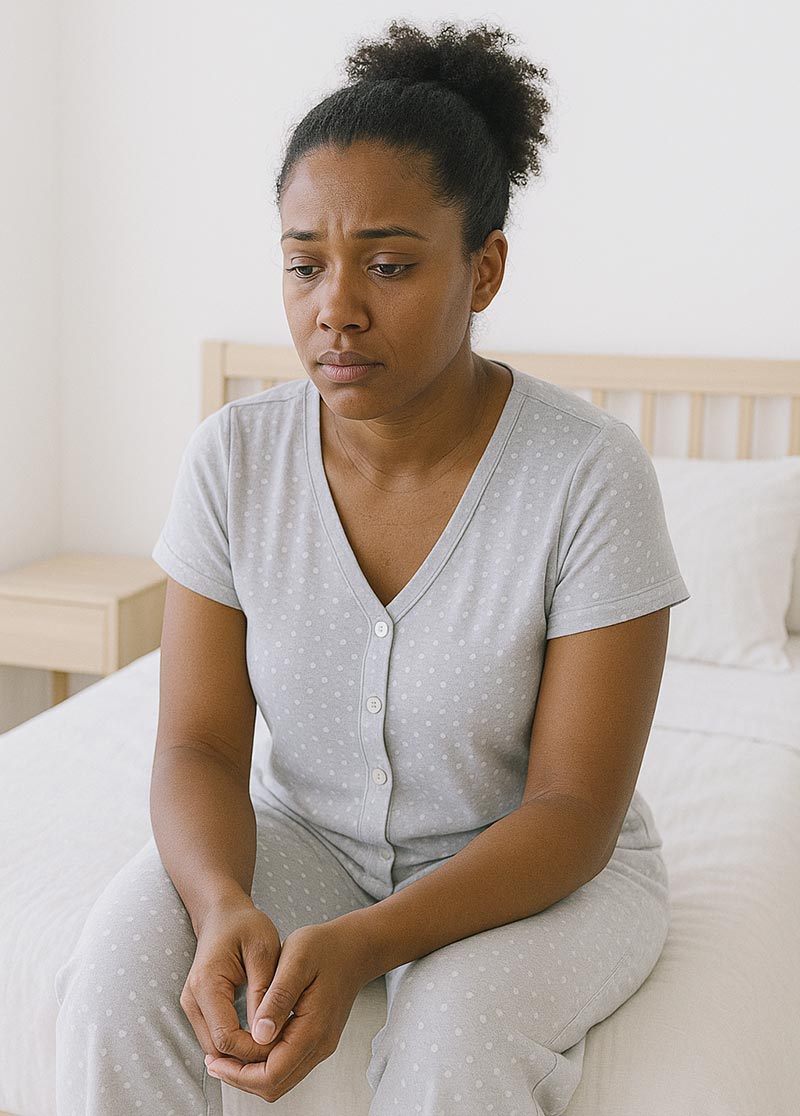- 980 E. Pecos Road, Suite 3, Chandler, AZ 85225
- (480) 963-8800
Conditions » Low Libido
Low Libido Treatment
A healthy sex drive is an important part of overall wellness and quality of life. However, many men and women experience low libido (reduced sexual desire) at some point — often caused by hormonal imbalances, stress, fatigue, or other health issues.
At Best Life Chiropractic & Wellness, we take a natural, whole-body approach to restoring sexual wellness. Rather than masking symptoms, we focus on identifying the underlying causes of low libido and helping your body rebalance naturally, so you can feel confident, energized, and connected again.
A drop in sexual desire can be triggered by many physical and emotional factors, such as:
Hormonal imbalances (low testosterone or estrogen)
Chronic stress or fatigue
Poor circulation or nerve function
Depression or anxiety
Certain medications
Poor sleep or lack of exercise
Nutritional deficiencies
Chronic pain or inflammation
When your body’s natural balance is disrupted, energy, mood, and hormone levels all suffer — often leading to decreased interest and performance.
Low libido may appear differently for everyone, but common symptoms include:
Decreased sexual desire or interest
Difficulty achieving or maintaining arousal
Reduced energy and stamina
Low mood, irritability, or stress
Sleep disturbances or poor recovery
Changes in body composition (loss of muscle, weight gain)
If left unaddressed, these issues can impact self-confidence and relationships, but the good news is — they’re treatable.

How We Treat low libido
At Best Life Chiropractic & Wellness, we use a combination of natural therapies and holistic care to restore balance to your body, mind, and hormones.
We begin with a detailed assessment to identify what’s affecting your libido — whether it’s hormonal, structural, or lifestyle-related. Understanding the root cause allows us to create a personalized plan for recovery.
Spinal misalignments can interfere with nerve communication and blood flow to vital organs, including those involved in sexual health. Chiropractic care helps restore proper nerve function, circulation, and hormonal balance.
Our advanced SoftWave Tissue Regeneration Technology (TRT) promotes cellular repair and improves circulation — essential for optimal sexual function and hormone regulation. Many patients notice improved vitality and energy after treatment.
We provide guidance on stress reduction, nutrition, exercise, and sleep habits — all key components in supporting healthy hormone levels and overall vitality.
Low libido, or reduced sexual desire, is a common issue that can affect individuals of all ages and backgrounds. Understanding the multifaceted nature of low libido is essential for identifying effective treatments and support systems. This guide aims to provide clarity on the causes, symptoms, and holistic approaches available to restore sexual wellness.
By exploring the various factors that contribute to low libido, including hormonal imbalances, psychological stressors, and lifestyle choices, individuals can gain insight into their own experiences. This knowledge empowers patients to engage in informed discussions with healthcare providers about the best strategies for improvement.
Natural therapies can play a significant role in addressing low libido by promoting overall health and well-being. These therapies may include nutritional counseling, herbal supplements, and lifestyle modifications that align with the body's natural rhythms. Implementing these strategies can help restore hormonal balance and enhance sexual desire.
For example, certain herbs like maca root and ginseng have been traditionally used to boost libido and improve energy levels. Additionally, incorporating a balanced diet rich in vitamins and minerals, along with regular physical activity, can significantly influence sexual health and vitality.
Effective communication between patients and healthcare providers is crucial for addressing low libido. Open discussions about sexual health can lead to more tailored treatment plans that consider individual needs and preferences. This dialogue fosters a supportive environment where patients feel comfortable sharing their concerns.
Moreover, educating patients on the importance of discussing their symptoms can lead to earlier interventions and better outcomes. Encouraging patients to express their feelings and experiences can help practitioners offer more personalized guidance, ultimately enhancing the quality of care.
Maintaining sexual wellness requires ongoing attention and care, particularly for individuals who have experienced low libido. Long-term strategies may include regular check-ins with healthcare professionals, continued lifestyle adjustments, and the incorporation of stress-management techniques. These practices help sustain hormonal balance and emotional well-being.
Implementing routines such as mindfulness, yoga, or meditation can significantly reduce stress levels, which are often linked to low libido. Additionally, fostering emotional intimacy with partners through open communication and shared experiences can strengthen relationships and enhance sexual desire over time.